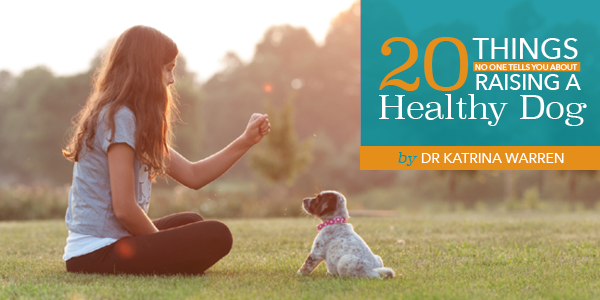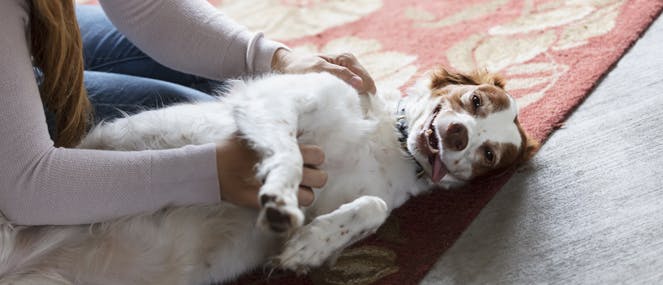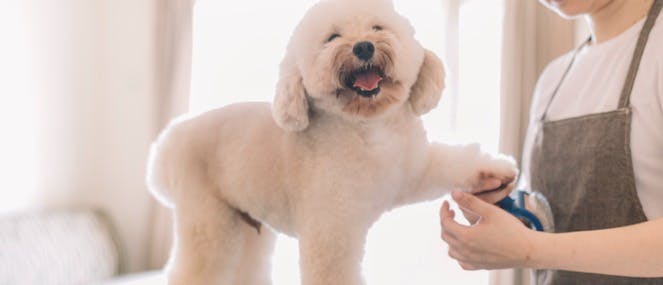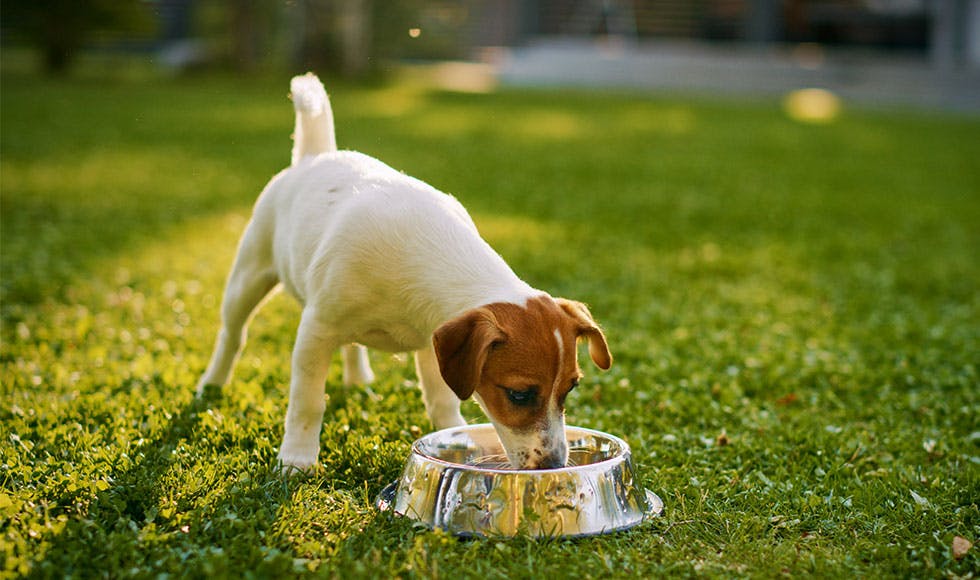
- A Guide To Perfect Your Pet's Health/
- Health and Vitality Products For Your Dog/
- 20 things no one tells you about raising a healthy dog
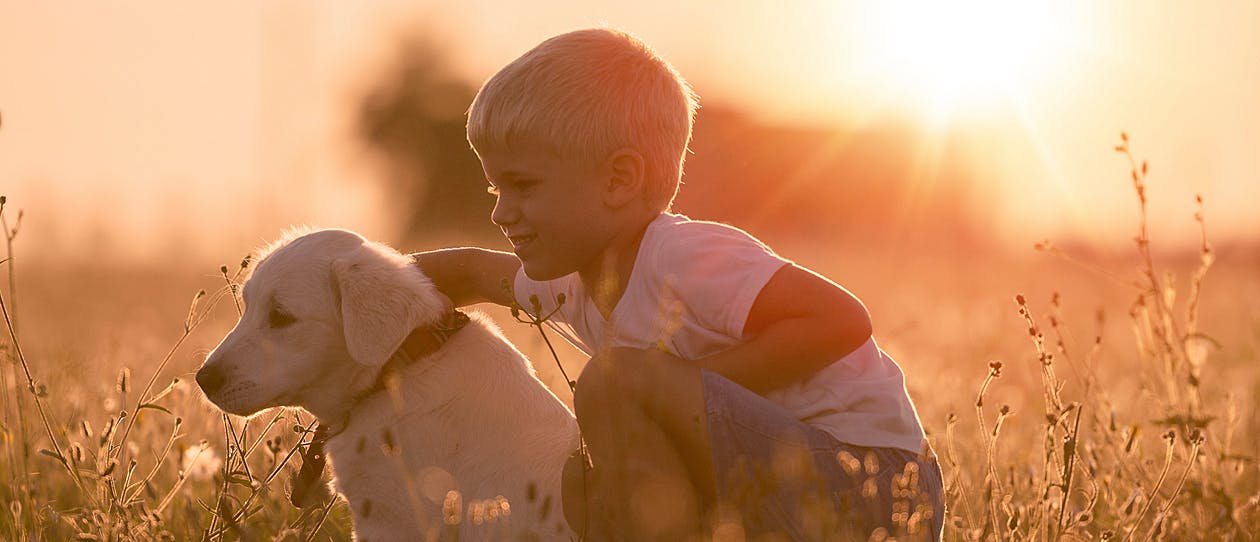

Dogs are often an integral part of our family - playing a huge role in helping our children learn responsibility and being a loving and loyal companion throughout the years.
Dr Katrina Warren has worked with PAW to develop a go-to guide for pet owners looking to understand all aspects of pet care, grooming and training. This all-inclusive eBook is expert approved so you can feel confident knowing that your long-term furry family member can have the best health and character possible.
Download the full puppy tips eBook
20 things no one tells you about raising a health dog
1. Regular worming is a must. Worm them for roundworm, hookworm, tapeworm and whipworm.
2. Heartworm comes from mosquitos. To prevent heartworm, give your dog a heartworm preventative like a monthly chewable.
3. Fleas can distress your pup. If you find fleas, be sure to wash all bedding to prevent new fleas from hatching, and vacuum. Also, be careful with harsh washes on little dogs.
4. Vaccinate against Parvovirus, Distemper, Hepatitis and Canine Cough. Pets should have these vaccinations before joining your family.
5. De-sexing is recommended at 6 months of age. Apart from the obvious benefits, this will also make your pup less likely to roam away from home.
6. Pups need pedicures! If they don’t walk on hard surfaces frequently, their nails can become curled and hurt their paws. You can clip them yourself or take them to the vet. To keep their nails strong you can also give your loved one a multivitamin, like PAW Coat, Skin and Nails.
7. Even dogs need dental care. If you train your puppy from a young age, brushing will be much easier, but it also helps to have some hard food in their diet. Raw chicken necks and wings can be offered from 12-14 weeks of age.
8. Keep their ear hygiene in check. Avoid harsh chemicals as this is a sensitive area. PAW has a gentle ear cleaner with no alcohol or acids commonly found in pet ear cleaners.
9. Be sure to maintain their figure with regular exercise. Whilst this seems like a given, many pets don’t get enough active time.
10. Your dog probably wants friends. Socialising your dog with other dogs and humans is important so that they know how to act around other pets, small children and other carers such as the vet.
11. Diet is essential. Puppies need to eat more frequently than grown dogs. About 3-4 meals a day is recommended until they are 6 months old. Then you can cut back to 2 meals per day.
12. Dogs like to snack too! Snacks are great for rewarding good behaviour. But be sure to check what type of snacks you are giving, and don’t give too many. Snacks can be full of preservatives, salt and sugar.
13. Sensitive skin is a thing. A puppy’s coat is almost as fragile as a baby’s skin. And since they are often out getting muddy and dirty, they tend to need more frequent baths. Be sure to use a gentle shampoo to avoid stripping their skin. Try PAW Puppy Gentle Shampoo.
14. Dogs love to chew. Chewing generally subsides within a year, however can become a problem if not managed. Provide chew toys and test out those where you can add a bit of wet food inside. Freezing the toy with the treat inside will also keep them busier for longer.
15. Nipping and biting is normal for puppies. Playful bites do not mean that your puppy will grow up to be a biter. Avoid overexciting your dog or playing rough with them as this can lead to nipping.
16. Potty training can be tough. Try and keep this as positive as possible, as encouragement will get your farther than scalding. Praise them when they go to the bathroom, in the right places.
17. Sometimes young dogs are non-responsive. The world is very exciting for them, so you may find that they aren’t always interested in coming when you call. Make sure they know that coming when you call is a pleasant experience. Grab their favourite toy or let them have some snacks like PAW Wellness + Vitality Multivitamin & Wholefood Chews.
18. Dogs usually bark most right after their owners leave home. Try to avoid annoying the neighbours by giving them something to preoccupy themselves just before you leave, like a chew toy stuffed with food.
19. Digging is natural for dogs. However, if you don’t want holes in your back yard, make sure they get plenty of exercise and aren’t bored, as boredom can lead to digging.
20. You will need to teach them not to jump on people. Puppies love to jump up when excited, and it is very cute! However, once they get bigger, jumping will become a problem. Instead of making eye contact when they jump up, try to ignore them and once they have 4 paws on the ground, treat them with a cuddle, snack or toy.
Good luck with your new family member!
Related products:
PAW Digesticare 60™
A multi-strain, multi-species probiotic and wholefood powder for the maintenance of everyday digestive health of pets.
PAW Puppy Gentle Shampoo
Specially formulated to gently & effectively clean and nurture young skin. Recommended by vets nationally, it provides the right start to young skin.
PAW Complete Calm
Tasty kangaroo based chews that contains Tryptophan, B group vitamins and a blend of multivitamins and nutrients to support the general health and nervous function in dogs.

